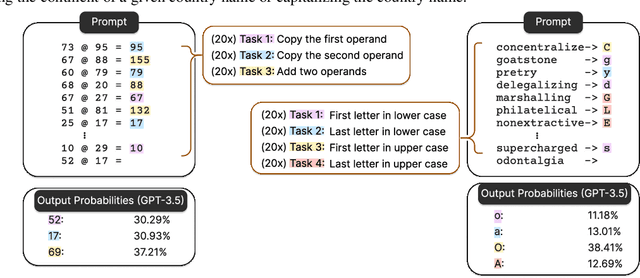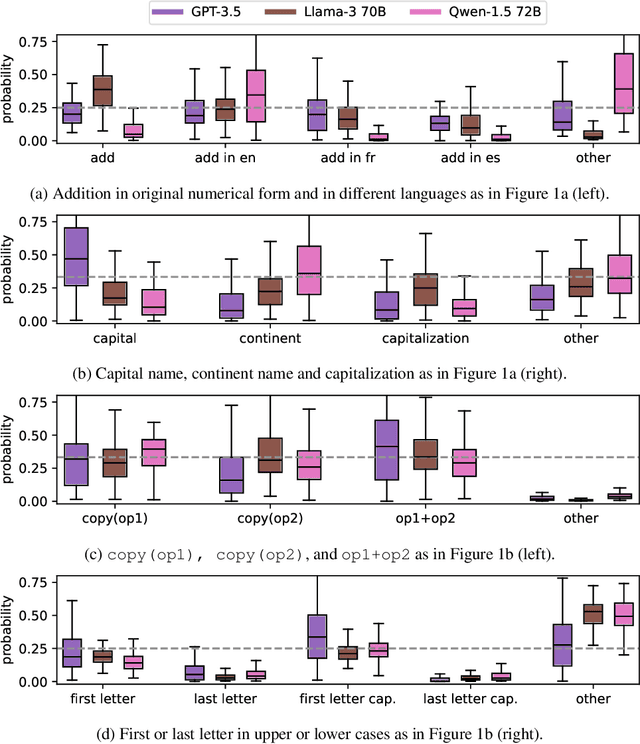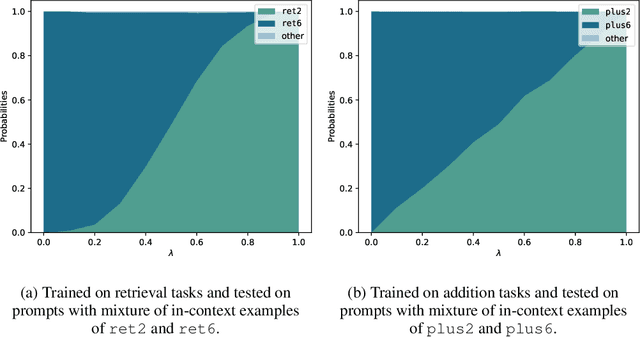Vasilis Papageorgiou
Everything Everywhere All at Once: LLMs can In-Context Learn Multiple Tasks in Superposition
Oct 08, 2024



Abstract:Large Language Models (LLMs) have demonstrated remarkable in-context learning (ICL) capabilities. In this study, we explore a surprising phenomenon related to ICL: LLMs can perform multiple, computationally distinct ICL tasks simultaneously, during a single inference call, a capability we term "task superposition". We provide empirical evidence of this phenomenon across various LLM families and scales and show that this phenomenon emerges even if we train the model to in-context learn one task at a time. We offer theoretical explanations that this capability is well within the expressive power of transformers. We also explore how LLMs internally compose task vectors during superposition. Furthermore, we show that larger models can solve more ICL tasks in parallel, and better calibrate their output distribution. Our findings offer insights into the latent capabilities of LLMs, further substantiate the perspective of "LLMs as superposition of simulators", and raise questions about the mechanisms enabling simultaneous task execution.
From Artificial Needles to Real Haystacks: Improving Retrieval Capabilities in LLMs by Finetuning on Synthetic Data
Jun 27, 2024



Abstract:Recent studies have shown that Large Language Models (LLMs) struggle to accurately retrieve information and maintain reasoning capabilities when processing long-context inputs. To address these limitations, we propose a finetuning approach utilizing a carefully designed synthetic dataset comprising numerical key-value retrieval tasks. Our experiments on models like GPT-3.5 Turbo and Mistral 7B demonstrate that finetuning LLMs on this dataset significantly improves LLMs' information retrieval and reasoning capabilities in longer-context settings. We present an analysis of the finetuned models, illustrating the transfer of skills from synthetic to real task evaluations (e.g., $10.5\%$ improvement on $20$ documents MDQA at position $10$ for GPT-3.5 Turbo). We also find that finetuned LLMs' performance on general benchmarks remains almost constant while LLMs finetuned on other baseline long-context augmentation data can encourage hallucination (e.g., on TriviaQA, Mistral 7B finetuned on our synthetic data cause no performance drop while other baseline data can cause a drop that ranges from $2.33\%$ to $6.19\%$). Our study highlights the potential of finetuning on synthetic data for improving the performance of LLMs on longer-context tasks.
 Add to Chrome
Add to Chrome Add to Firefox
Add to Firefox Add to Edge
Add to Edge